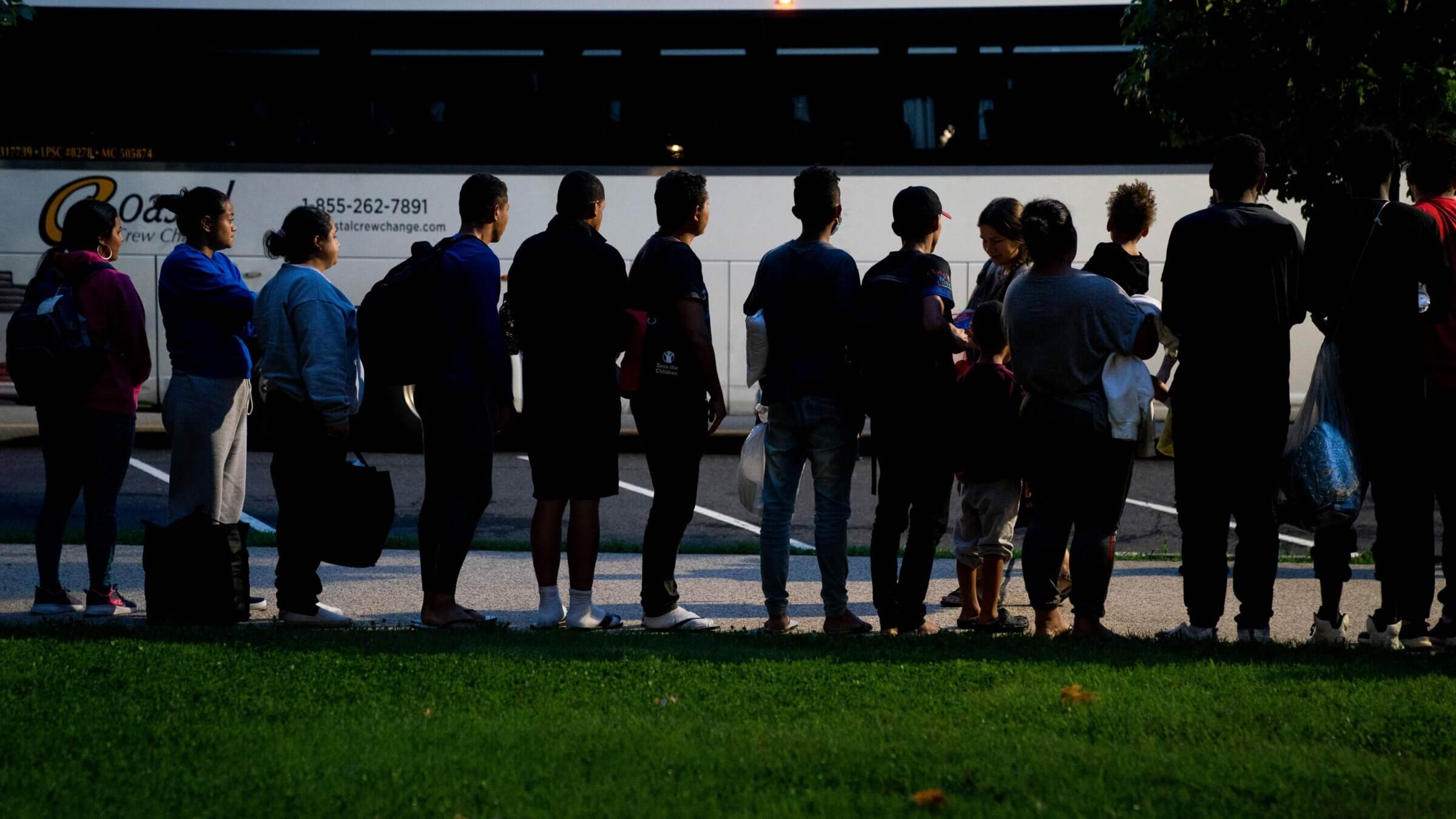A simple idea for your Seder that goes right to the heart of Passover
Say it loudly and with feeling: ‘We are all immigrants!’

Migrants who boarded a bus in Texas listen to volunteers offering assistance after being dropped off within view of the U.S. Capitol building in Washington, D.C., on Aug. 11, 2022. Photo by STEFANI REYNOLDS/AFP via Getty Images
Here’s an idea for Passover that goes right to the heart of the holiday.
Say this at your Seder, and feel it deeply: “We are all immigrants!”
Most of our forebears came to the U.S. from somewhere else, fleeing oppression. For Jews of color, some of those forebears were brought here in chains. All of them sought freedom, as did the ancestors whose journeys we celebrate at the Seder.
But to too many of our next generations, this is not known, or known only vaguely. The children and grandchildren at our Seder tables may know what their national roots are, but not why or how their families ended up here.
And this at a time when there are immigrants, refugees and asylum seekers entering both the U.S. and Israel. Often their stories are similar, and yet too often they are not welcomed, not treated as our families were treated or how we wish they might have been treated.
In my circles, there are too many people who are only two generations removed from the people seeking asylum here who find it easy to complain about these new arrivals, to blame them for our own social problems, who do not remember the obligation and the mitzvah of welcoming the stranger.
‘Teach as we are commanded to’
Passover seems the perfect time to elevate these stories, to teach as we are commanded to do in the Haggadah. Here are two proposals, each simple to implement alone or in combination.
At the beginning of your Seder go around the table and have each person identify themselves in this context. I might say, for example, “My paternal grandfather came here from the German Jewish area of Switzerland. The youngest of nine children, he came alone at the age of 16 and subsequently founded and ran a successful business. I am a second-generation immigrant, one-quarter Swiss.”
On your Seder plate, where symbolic foods are explained as the service proceeds, add one item connected to an immigrant ancestor. For example, you might include a valued possession handed down from generation to generation that comes from the country of origin; a copy of the ship manifest that shows when one of your forebears arrived; or a photo of your family’s earliest days in the U.S. I will include on our Seder plate a book by my other grandfather. His family came from Germany, and he was born and grew up on the Lower East Side. He became a public-school teacher and principal and crossed the street every afternoon to teach English to Yiddish-speaking immigrants. His book is a basic text on teaching English as a second language before that was even a thing.
I hope discussions will ensue — discussions as to why 10% of the population of Venezuela has left that country in the last decade; discussions about the Afghans and Ukrainians and Haitians and Venezuelans seeking refuge and asylum here; discussions about the courage and resilience of all those who flee danger, sometimes risk their lives to get here and want what all immigrants want — a chance for a new life. Finally, I hope there will be discussions about what we might do to help.

















